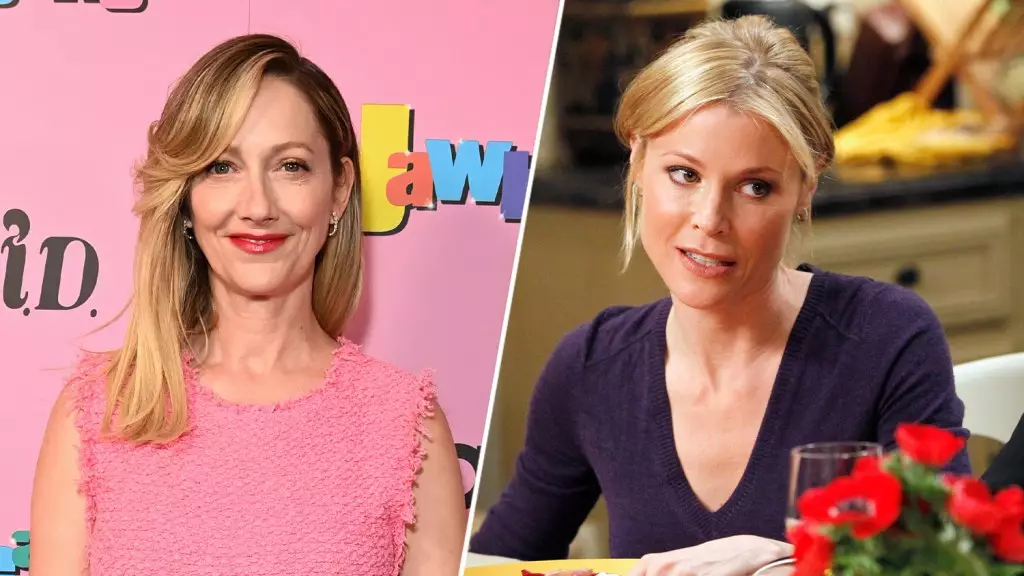In the world of television, few sitcoms have left as lasting an impression as *Modern Family*. With its unique blend of humor, heart, and family dynamics, it captured the hearts of millions over its eleven-season run from 2009 to 2020. But for actress Judy Greer, the casting choices that shaped this iconic show came with a significant personal reflection. Greer recently shared her thoughts on her choice not to audition for the role of Claire Dunphy, a character that ultimately made Julie Bowen a household name. Her hesitations stemmed not from doubt in her talent, but from a deeper introspection about her own life circumstances and career direction at the time.
Greer candidly discussed how her mindset towards motherhood was significantly different back when the audition for *Modern Family* surfaced. At the time, she was in a phase of her career where she started receiving roles as a mom in movies, but she did not resonate with the idea of portraying a television mother to three children, one of whom was in high school. In her conversation with actor Jesse Tyler Ferguson, Greer emphasized that she “didn’t even want kids” at that juncture in her life. This admission reflects broader considerations about how personal ambitions can influence professional decisions. She recognized that stepping into the role of Claire would cement a public image that didn’t align with her personal inclinations, as she relayed that she wasn’t ready to be “America’s mom.”
Greer’s refusal to audition was, in some ways, a rejection of a lifestyle that she wasn’t ready to embrace. Instead of seeking the stability that comes with a long-running television series, which usually dictates a significant commitment, she opted for the flexibility and diverse experiences of acting in various movie roles. Such insights provide a valuable perspective on how early career decisions are often intertwined with personal life choices. They ignite discussions about societal pressures on actors to conform to certain roles, particularly as they become associated with motherhood.
Moreover, Greer’s reflections opened up a broader dialogue about perceptions of success in film versus television. The actress noted that in a movie, the roles come and go—people might forget you played a mother in one film but in a television series, you become defined by that role for years to come. This realization encapsulates an actor’s dilemma in choosing projects: the allure of being part of a successful show versus the creative freedom that films often provide. Greer’s viewpoint raises an interesting contrast, offering a glimpse into the actor’s psyche when faced with the choice of long-term visibility versus creative diversity.
Meanwhile, Julie Bowen’s own audition story adds another layer to this narrative. Bowen, who ultimately secured the role, initially had reservations about her comedic abilities and found herself conflicted between two roles, one of which featured a pregnant character. Her fear of bombing her audition speaks to the insecurities that often accompany performing in front of casting directors, which can further complicate an actor’s journey to success. Bowen’s experience, juxtaposed with Greer’s hesitations, exemplifies the unpredictable nature of an acting career.
Ultimately, the impact of both actresses’ decisions speaks volumes about the complexities that surround career paths in Hollywood. Judy Greer’s reflection represents a thoughtful introspection on identity. She carefully navigated her choices, weighing personal desires against professional opportunities, while Julie Bowen’s experience highlights the unpredictable path that brought her to a role that would define her in the eyes of the public.
In retrospect, Greer’s choice may have paved the way for roles that instead allowed her to explore a wider range of characters. For audiences, it’s a reminder of the intricate dance between personal and professional life that many actors face. The legacy of *Modern Family* invites us to consider not just the success of the show but also the myriad of individual choices that contribute to the larger tapestry of television history. Each decision, informed by both personal desires and professional ambitions, shapes the narrative of an actor’s career and influences the roles they choose to embrace or reject.

